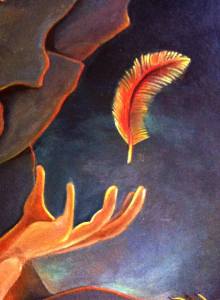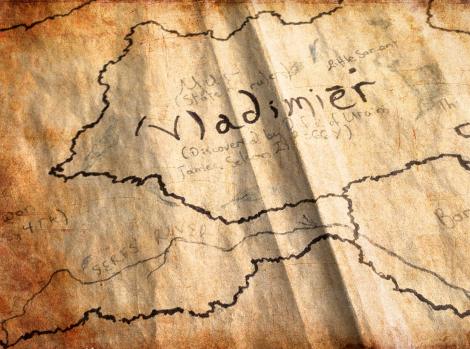This continues my occasional series about new, unpublished writers, the ones we’ll be seeing more of in the future.
Today’s guest blog is by Lucy Summers. She sounds interesting to say the least–when someone tells you they are into “horseback riding, archery….and oh, I have a small obsession with daggers” you know there’s something fun happening.
Lucy is writing a book called Storm of Thieves and here’s the pitch:
A thief must pull off a dangerous heist that entangles her with a deadly assassin and a former slave. The fate of their world now rests with her. Pursued by the guild of a criminal empire, success – and their lives – are far from promised.
Sounds like it’s worth a read. So let Lucy tell you about herself and Storm of Thieves, and her thoughts about the future of fantasy. You can visit her Facebook page here: Lucy Summers.
1. Who is Lucy Summers?
I am a girl who is full of passion. I believe that if you love something, don’t hold back and show the world what it is you care about. For me, there are several things that strike my passion. Horseback riding is one of them. Archery is another. I might also have a small obsession with daggers. The entire fantasy/medieval setting is something that I really enjoy. It started when I was a teenager watching The Lord of the Rings. I’d always enjoyed fantasy stories, but something about those movies turned kindling into fire. I picked up archery because of it. Now that passion has grown, I’ve taken it a step further.

In my work-in-progress, one of my characters, Ryale, is an archer and in some scenes she shoots her bow from her horse. I think I might be slightly crazy, because I wanted to know what that felt like. So I trained my horse for it and shoot arrows off her just so I can write it more accurately. I also cosplay my characters and have a friend photograph us. I find it helps to have a visual for specific scenes. Next thing I know, I just kept taking more and more of them based off scenes from the story. It’s something I really enjoy doing. There are more photos and snippets of the story on my Instagram account, as well as updates on my Facebook page.
2. Tell us about your work-in-progress Storm of Thieves.
My story is about a thief (Ryale), a seven foot tall human giant (Thane) and an assassin (Daemon) all wrapped up in a heist together. There is only a little bit of magic within their world, none of which they can control. The unusual threesome end up having to work together in order to avoid capture by the antagonist, all while navigating a land run by a criminal empire where death is more common than life. It has darker undertones to it, and can get gritty at times. But everyone in it is human. There are no mythical races or creatures.
I enjoyed creating the dynamic between them. Thane is a formal slave with newfound freedom and kind and humble, pitted with Ryale, who is a wild a reckless thief. She is high-energy and clever, but untrusting of Daemon. Daemon is a skilled killer, with unmatched skills with his blades. His arrogance knows no bounds.
I’m writing it from three first-person points of view, broken into sections, with the first part being Thane, the middle part Ryale and the last part Daemon. I try to make each voice unique, even in the writing itself, to bring each character to life. I chose to do it this way because as the story unfolds and moves the reader gets more out of it depending on who they are with. It’s not simply retelling the same set of scenes per character. The story moves on without such repetition. With a few small twists along the way, the unravelling of the world and heist is best told this way.
I began this story about two years ago when a photo online inspired the creation of Thane. In all honesty, I didn’t actually intend to write a book. I’d dabbled in writing throughout my childhood, the typical young girl adventure novels, and I took a few writing classes in college, but I never sat down with the full intent of writing a novel. It just sort of…happened. I began writing a few scenes with Thane, and then Ryale came into the picture, and then Daemon forced his presence in the story as well and next thing I know the story just unfolded. There was no outline or template or even overall plot. The story just became what it is on its own. That, I think, is part of the magic of writing. Especially fantasy.
3. Why do you like fantasy as a genre?
Fantasy is different from any other story. People tend to think it’s easier to write because you can make up rules to allow things to happen that can’t in real life. I find this to be the opposite. It’s not easier. It’s harder. And that’s why it’s my favourite. Anything can happen. The world most fantasy stories take place in, including mine, is completely made from scratch, different rules, values, traditions, even people and races. Nothing is off limits. That’s the beauty of it.

4. Who do you see as your writing influences?
I am such a huge fan of Patrick Rothfuss. His world and characters are compelling enough, but the language itself is so poetically beautiful. I wish I could write even half as well as he does. The man is truly a master of words. I also love the sheer creativity of Ransom Riggs. He weaves a story so well and with such a large cast, too.
5. What is the future of fantasy? Do readers still want the same old thing or are they looking for something fresh and “different”?
I think it’s a bit of both. I think the same story can be told by 100 people and it would still come out fresh and unique as each person puts their own spin on it. It’s really just a matter of opinion on what is well liked by readers. Tropes and cliches will always have a love/hate relationship with readers; there will be those who love them and those that hate them. I don’t think its exclusive to only fantasy. But I think a good spin on something old or a new approach to a story can easily be well loved and accepted.
6. Are there things about the genre you find worn-out or over-done? Is there a particular direction you’d like to see fantasy take as a genre?
I’m not really the type to pick apart a story to the point I’m bored with it. I won’t set a book down because the main plot line has a dragon guarding a princess, or a knight falling in love with royalty. I tend to fall in love with characters more than plot. If I can get behind a character, the overdone or worn out story matters less. I love character-driven books, and that’s something I’m trying to recreate in my own. While the plot is obviously important, having characters that readers like and/or relate to is far more critical. If they are dull or two-dimensional, it lacks a focus and I find myself getting bored. I’d like to avoid that.

7. What have been your struggles as a writer? What have been your personal triumphs?
Turning my mind to focus on the writing part can be hard. It gets frustrating, writing and rewriting and editing and making more changes, and still not being quite happy with the work. It is hard to know when its “done” because the more you write, the more the skills develop. It doesn’t help that I honestly have no idea what I’m doing. Everyone has a different process. For me, I have to explore a scene with my characters to understand. Sometimes, that ends up being something pivotal to the plot. Other times, it’s four or five pages of poking around only to realize that it just didn’t work the way it needed to. But then those little moments come when everything just clicks into place. Those are the moments I live for, finding small keys that unlock a greater picture and fit everything together.

8. Why is fantasy an important genre?
It’s freedom. It’s taking what is impossible and finding a way to bring it to life and make it real, even if it’s only in the reader’s mind. Words have magic. They bring to life something that can’t be created elsewhere, a unique experience for each individual reader. There are always going to be slight differences in speech, tone, and even visualizing the world and characters. Everything in a fantasy setting is unique. The writers of these worlds expanded their minds into other places, found them, and brought them back with them to share with others.
So that’s Lucy Summers. You can find here Facebook page here: Lucy Summers. Or check out her Instagram site: @storm_of_thieves.
(Featured image: https://pixabay.com/en/background-fantasy-landscape-tree-3607469. Other images (c) Lucy Summers.)
Russell Proctor www.russellproctor.com



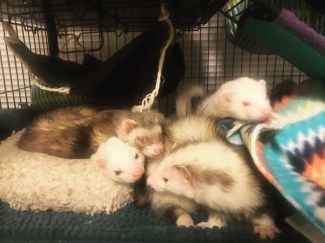








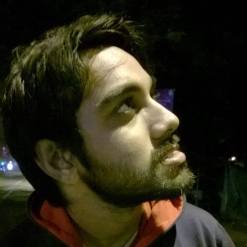

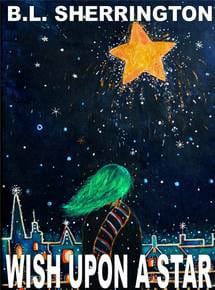

![Pageflex Persona [document: PRS0000038_00060]](https://russellproctor.files.wordpress.com/2017/05/child-of-the-night-guild-cover.jpg?w=251&h=377) Andy Peloquin isn’t afraid of a challenge. He likes his fantasy to explore the darker side of human nature, and with his book Child of the Night Guild (Book One in the Queen of Thieves series), he has certainly done that. His story about an innocent girl transformed through brutal training into a thief and killer is a gripping read all the way. This is partly because it’s a damn good story. The other reason is that, like his heroine, Peloquin successfully tackles a number of challenges many authors would quail at. In the hands of a lesser writer, much of this story could have gone tragically wrong.
Andy Peloquin isn’t afraid of a challenge. He likes his fantasy to explore the darker side of human nature, and with his book Child of the Night Guild (Book One in the Queen of Thieves series), he has certainly done that. His story about an innocent girl transformed through brutal training into a thief and killer is a gripping read all the way. This is partly because it’s a damn good story. The other reason is that, like his heroine, Peloquin successfully tackles a number of challenges many authors would quail at. In the hands of a lesser writer, much of this story could have gone tragically wrong.


